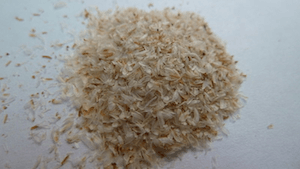Herbal medicines are increasingly popular and many people believe botanical herbs are both harmless and extremely beneficial to support health conditions. In some cases, this is absolutely correct. Many herbs are healthful to the body. Unfortunately,some herbs are not. The National Institutes of Health National Library of Medicine has reported a number of dangerous, life threatening consequences that have resulted from taking laxatives containing herbal ingredients. Three common herbal laxative ingredients in particular, psyllium, cascaras sagrada, and senna, may present very serious health risks and major medical complications such as hepatitis and liver failure.
Senna
Senna is an herbal stimulant laxative with serious risks, especially to the liver. Using senna to treat chronic constipation can lead to hepatitis, which is an extremely damaging condition to the liver that can lead to death. The Department of Nephrology at Université catholique de Louvain in Brussels Belgium reported a case of a woman who had developed liver failure from ingesting an herbal tea containing senna. Her liver damage was serious enough that transplantation was considered. Researchers warned that liver damage is a risk of using laxatives containing senna, especially in excess.
Cascara Sagrada
Cascara sagrada, is an herbal stimulant laxative and, like senna, using it can lead to hepatitis. Multiple incidences have been reported of patients who developed serious hepatitis and liver failure after taking herbal products containing cascara sagrada. The Division of Gastroenterology at Texas Tech University’s Health Science Center warns that the reason cascara sagrada has been linked to hepatitis is because it contains a compound called anthracene glycoside, which has long been known to cause hepatitis.
Psyllium
Perhaps the most common herbal laxative ingredient is psyllium. Psyllium is the seed of plantago ovata, and psyllium husk is a main component of bulk laxatives. When psyllium husk meets water, it has a tendency to swell up like a sponge and subsequently stimulate bowel contractions. However, studies and documented cases of emergency medical situations have shown that psyllium is a harmless or benign ingredient.
Like peanuts, psyllium is a food allergen and allergic reactions from handling psyllium have been reported since 1970. Most notably, anaphylaxis. Anaphylaxis is a serious condition that spurns respiratory tract irritation and swelling to the point of being unable to breath, which is incredibly scary because anaphylaxis can progress from bad to worse in a matter of seconds. If you’re not prepared for an attack, you may find yourself unable to breathe and in real danger. The Oregon Health and Sciences University in Portland reported an incidence of psyllium sensitivity that resulted in death from anaphylactic shock.
The Department of Internal Medicine at Johns Hopkins University School of Medicine reported a separate instance of a patient who had experienced runny nose and asthma due to psyllium exposure. The severity of her symptoms progressed to a life-threatening anaphylaxis. The doctors warned that psyllium allergies are more common than most people appreciate.

No comments:
Post a Comment
Note: Only a member of this blog may post a comment.